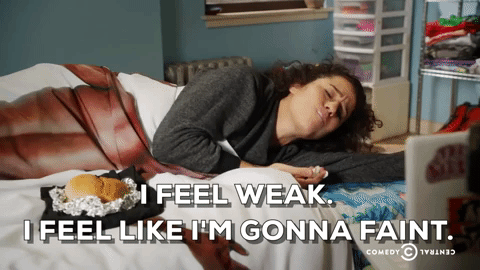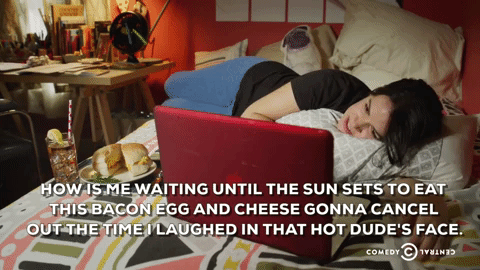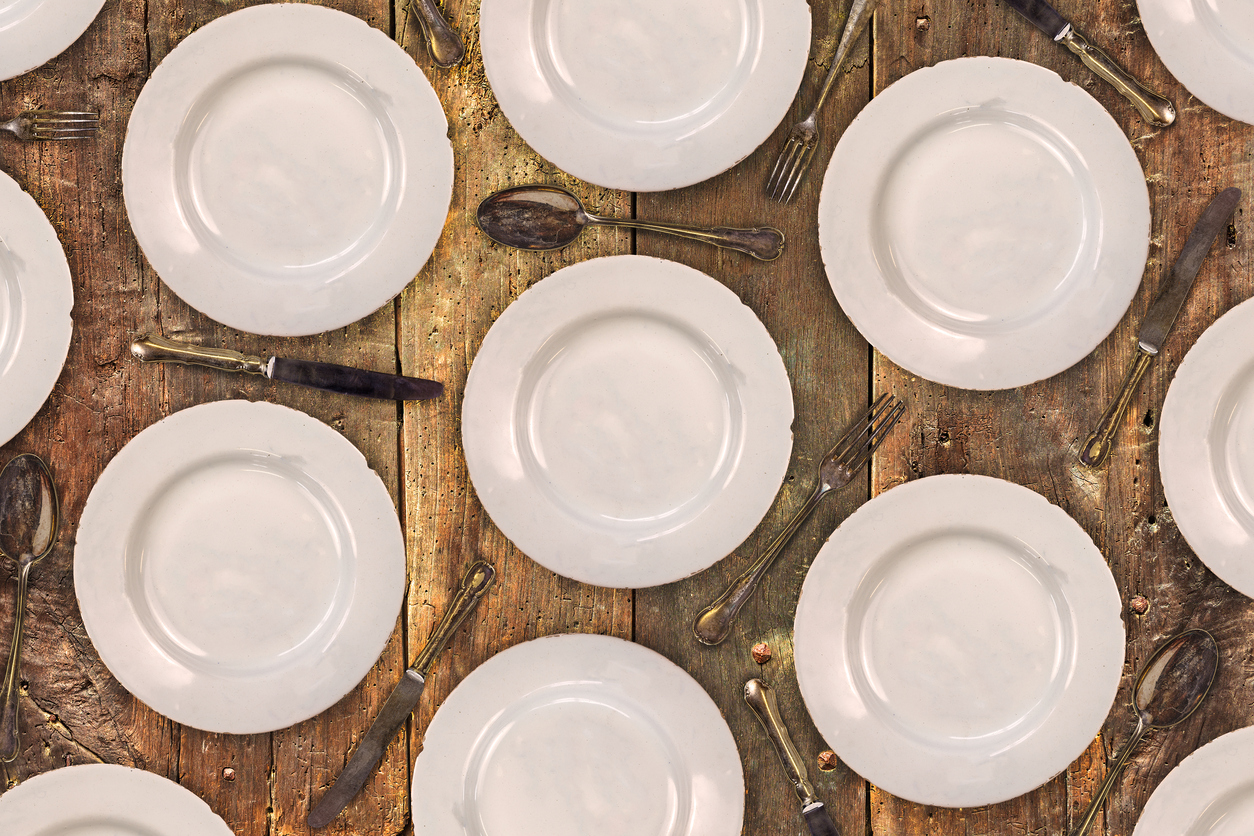To fast or not to fast: When it comes to Yom Kippur, that is the question for many who find themselves somewhere on the wondrous spectrum that is not-strictly-religious-but-still-identify-as-Jewish Jews. Maybe you tried it in college and passed out during your Organic Chem lecture (not the worst timing, tbh). Or maybe you refuse to fast because you’re not into the whole masochism thing. Whatever you’re reasoning is (or isn’t), what’s important is that you feel good about your decision and stay healthy along the way.
If you’re curious how other tribe members come to decide whether to fast or not, we polled 19 people and got a range of responses, from simple yeses to big fat nos to everything in between.
The Yeses:

I fast because it seems like a small sacrifice to make in the name of genuinely slowing down, taking time to reflect on the past year, and considering how I might have done things differently. I honestly do not think I would be able to dedicate my thoughts to those things with a bag of chips in my hand. Not to mention that chopped liver tastes 900 times better when you haven’t eaten all day.
I always fast. My parents usually fast, so I started to with them when I was young. I liked participating with my family and anticipating the breaking of the fast. When I’m fasting I feel like I’m forced to think about the meaning of the holiday. I don’t really see it as punishment, more a reminder to be more mindful and a chance to reflect. I also like the idea of carrying on traditions. The hardest part is not drinking coffee in the morning!
I fast, actually, which is a little odd because I don’t always observe it in other ways, like, say, by going to synagogue. But I feel like, by fasting, I am acknowledging the holiday and its importance to me even if I’m not doing what I’m “supposed” to otherwise. It sets the day apart and keeps me thinking about it and what it means.
I’m an atheist, but I started fasting again to stay connected to tradition and to meditate. Also, I forget to eat a lot when I’m working from home, so it’s not so difficult.
I usually do (but I don’t count water). It makes me feel more attached to my Judaism by participating in the fast.
I’ve fully fasted since I was 9 years old! I started because my entire family always fasted and I wanted to do what the adults did, and even now I’d feel like I was missing out on something fundamental by not doing it. Weirdly, I’m not very religious on other holidays. Yom Kippur and Passover are the two holidays where I’m at my most observant, so I guess on some level I appreciate those two chances to be more disciplined and mindful about what I consume—not just in terms of food, but entertainment, media, etc., since I do try to completely unplug.
I stopped fasting in college, and then I started fasting again when I moved back to New York and would go to services with my parents. When I moved away again for law school, I began making compromises: For the first two years I’d fast but I wouldn’t skip class, and I would only attend Kol Nidrei services. But this past year I decided to actually make the time for observation and fasted and attended services all day and a communal break fast. To me doing that was about saying my Judaism was worth making time for, and I didn’t need to subjugate my identity to any sort of secular/Christian/White pressures. As an adult, Yom Kippur has always been more about spirituality and self-reflection than atonement for sins or self-punishment.
The Nos:

If I could still sleep til 1 p.m. I would, but I do not. Too many hours in the day to eat.
I don’t, mostly cause a hangry me = not thinking clearly. Also, I usually work it (the life of a Jewish youth professional), and if I’m going to be friendly to teenagers, I should probably eat a snack.
I have in the past, but I no longer do, mostly because Christian hegemony means that I have to work and it’s not possible for me to think deeply and clearly (which is my primary task at work) if I am not eating.
I tried once when I was about 11 years old. Broke the fast because of chocolate cake. Never tried again, especially because I haven’t really connected to this tradition, even though most of my family has always fasted on Yom Kippur.
I did from age 11 to 30 or 31. At some point I realized that while I very much connect to the spirit of that day, fasting isn’t—for me—the best way to capture that spirit. Ironically perhaps, what I’ve been doing since that day requires writing: I take time to think about the past year and sort of “scan” all my significant relationships, and then in writing either forgive or ask for forgiveness. (I don’t usually share these words with the people they involve—it’s more internal work—though there have been exceptions.)
Heck na, once you leave Orthodoxy it’s all or nothing and I chose nothing.
I stopped fasting in college (about the same time I started self-identifying as culturally Jewish) because I don’t believe in that form of punishment for sins real or imagined. Real life atonement and forgiveness comes from those we’ve wronged.
I’ve always found it to be very funny how many people, including my entire family, get together each year to break the fast, yet no one actually fasts. Hmm… just an excuse to get together and eat more?
The In-Betweenies:

I would guess I’m like most people: I say I’m going to, and then I don’t.
I deprive myself but I don’t starve myself. Which basically means I’m on a juice fast until around 3:30 p.m. and then I eat. My mom never fasted nor my sisters. My dad only started to in recent years. I guess I feel it’s a holiday where I should be pensive and observant but there’s no need to starve just to say I did. I can’t connect my actual hunger to a spiritual hunger. At least not yet.
I’ll eat something small for breakfast, then not eat again until dinner. Been working for years.
In all honestly, I feel incredibly guilty when I don’t fast. But, I suffer from low blood sugar and hypoglycemia runs in my family, so fasting as a concept is really difficult. I think people in my family feel holier when they fast… and, before every fast we all say to one another, “Have an easy, but meaningful fast,” essentially code for, “Suffer, but don’t suffer too much, but suffer enough so you know (and God knows) you’re suffering.” I’ll probably start off the day not eating and cave at around 1 or 2 p.m. Then, when my knees began to shake and my whole body feels weak (i.e., when I’m at my “holiest” potential), I’ll eat a few crackers and remind myself that I’m just as Jewish as them.



